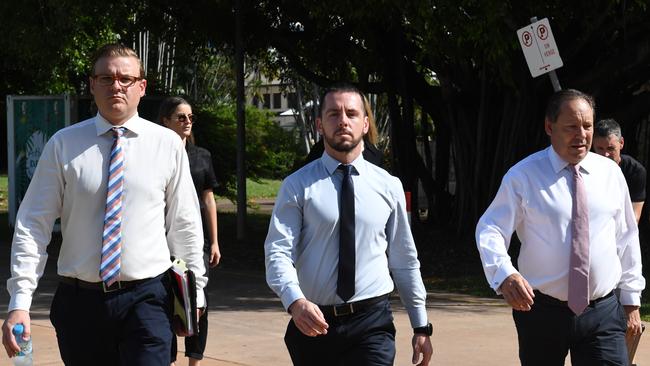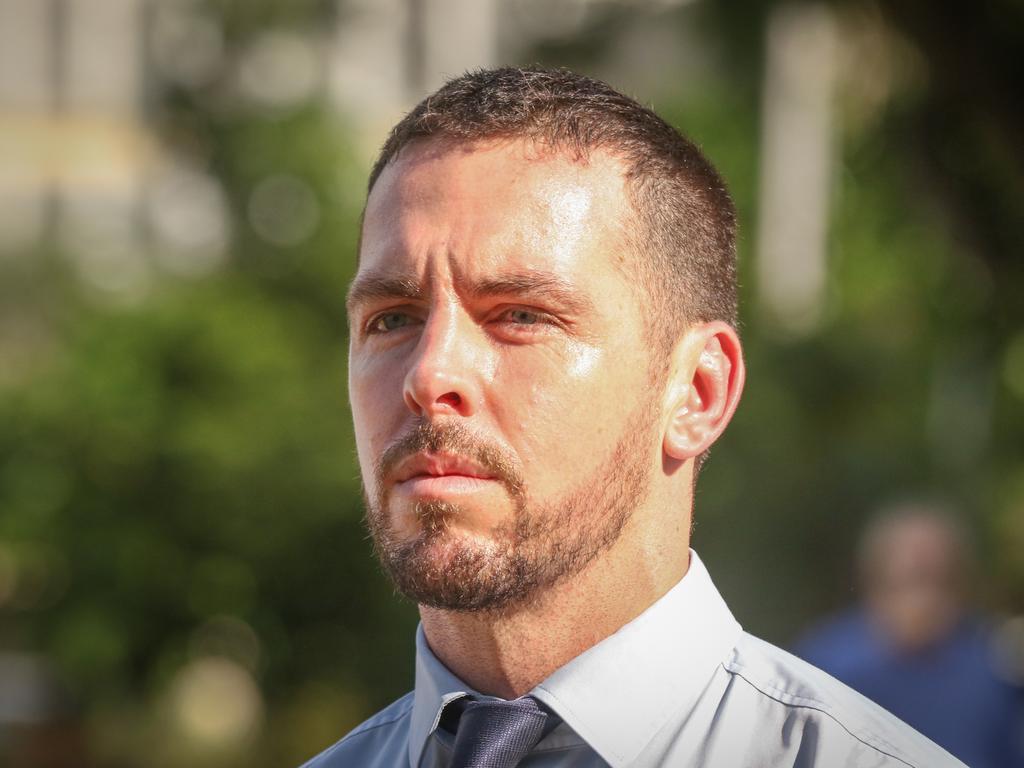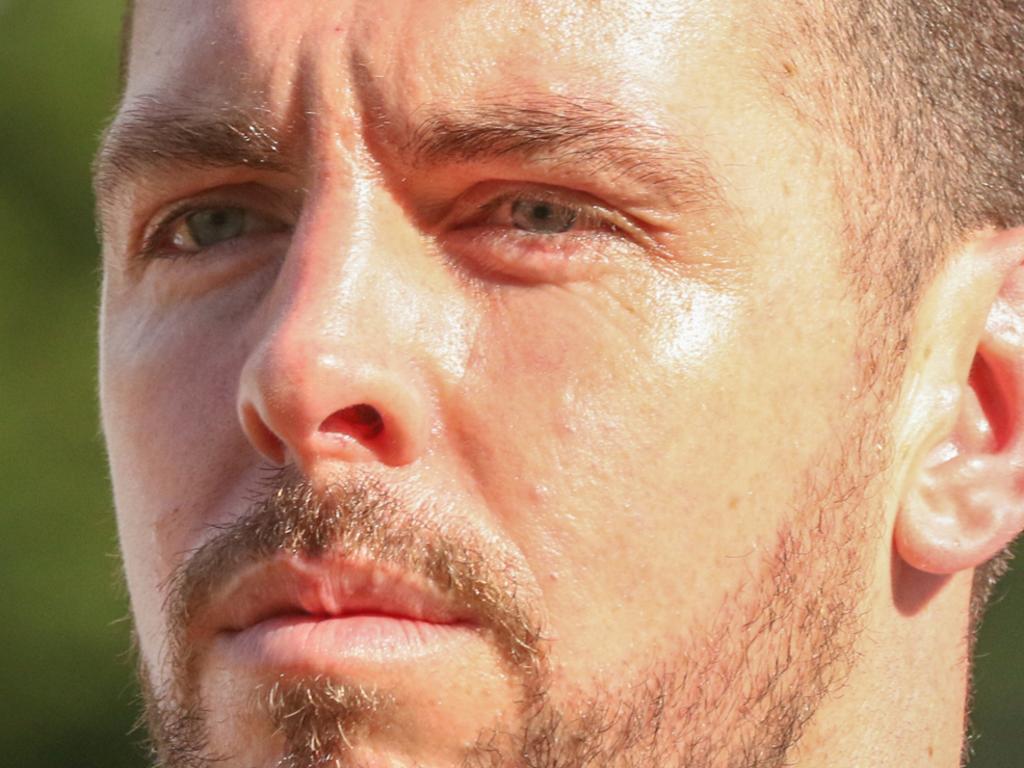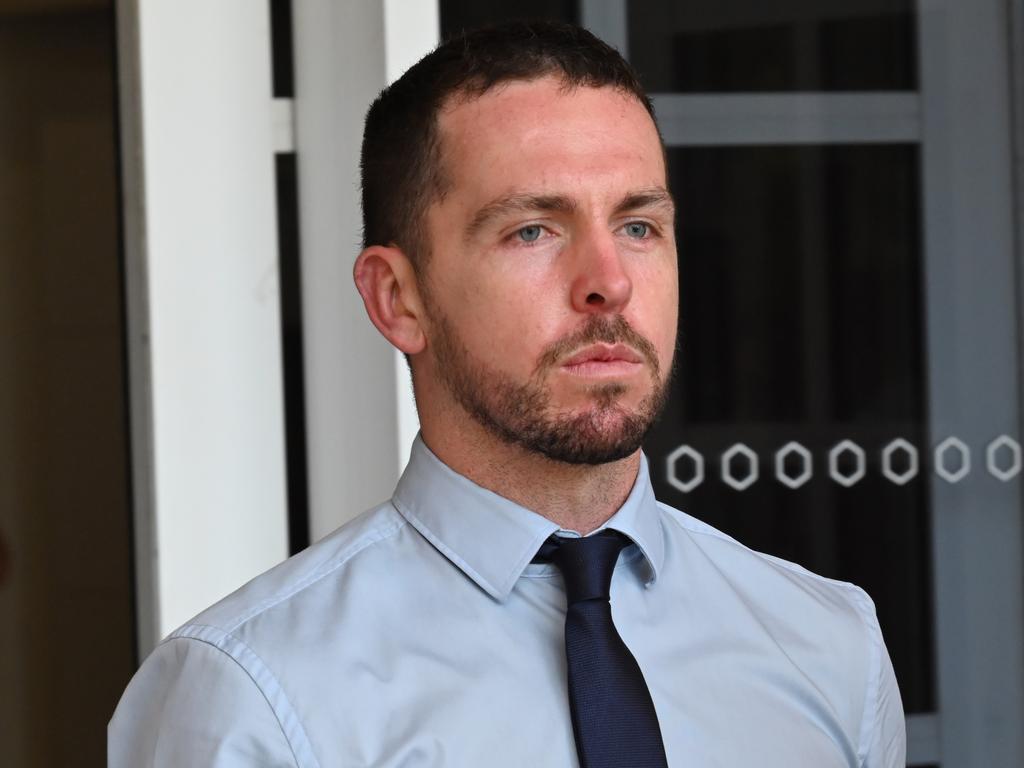Yuendumu: Rolfe verdict turns on what he perceived, judge tells jury
Zachary Rolfe’s fate now rests on what a dozen people decide he perceived in the 2.6 seconds between shooting Kumanjayi Walker once and firing twice more.

Zachary Rolfe’s fate rests on what a dozen people decide he perceived in the 2.6 seconds between shooting Kumanjayi Walker once and then firing twice more.
The Northern Territory Supreme Court has heard Constable Rolfe shot Walker in the back after the latter stabbed him with scissors and then again in the chest at close range after another officer, Adam Eberl, had wrestled Walker to the ground.
The 30-year-old policeman told the jury in his murder trial he thought he saw Walker stabbing Eberl and needed to shoot to “eliminate the threat” that Eberl could be killed.
Crown prosecutors accept the first shot may have been self-defence but say by the time Constable Rolfe fired again, Walker was effectively restrained. They say Rolfe became obsessed with Walker and shots two and three were not reasonably necessary.
Judge John Burns on Thursday summed up the case for the jury, saying to convict they would need to be satisfied the crown had proved the relevant charge and negated all three defences.
Constable Rolfe faces charges of murder, manslaughter and engaging in a violent act causing death. The latter two are alternatives to the first.
He has pleaded not guilty.
Justice Burns said it was not what actually happened but what the accused perceived at the time he fired that would be most critical to deliberations. “It is not enough … for you to be satisfied the accused used more force than was reasonably necessary in the performance of a duty as a police officer,” he said. “You must be satisfied, beyond a reasonable doubt, that the accused did not honestly believe, at the time that he fired the shot which caused the death of the deceased, that firing that shot was reasonably necessary to perform his duty or function.
“So that is an issue which is focused on what was in the mind of the accused at that time.”
The three defences are self-defence, acting reasonably in the course of his duties and acting in good faith while exercising police powers. If the crown fails to negate any aspect of those defences, the jury must return a verdict of not guilty on all charges.
To convict Constable Rolfe, all jurors must be convinced he “did not hold an honest belief” it was necessary to fire the shot that killed Walker in order to protect Constable Eberl. The jury must also be convinced firing that shot was “not a reasonable response in the circumstances as the accused perceived them to be”.
They must further be convinced the accused’s conduct in firing the fatal shot was “unreasonable in the circumstances as the accused perceived them to be for the performance of his duty as a police officer” and that he “did not honestly believe he was acting in the performance of a duty … as a police officer”.
That assumes the jury finds all elements of the relevant charge are properly made out.
Justice Burns said the crown case about Constable Rolfe’s “state of mind” was circumstantial, meaning each juror needed to be persuaded no other reasonable conclusion could arise from proven facts for the crown to succeed.
The jurors will resume deliberations at 9am on Friday.






